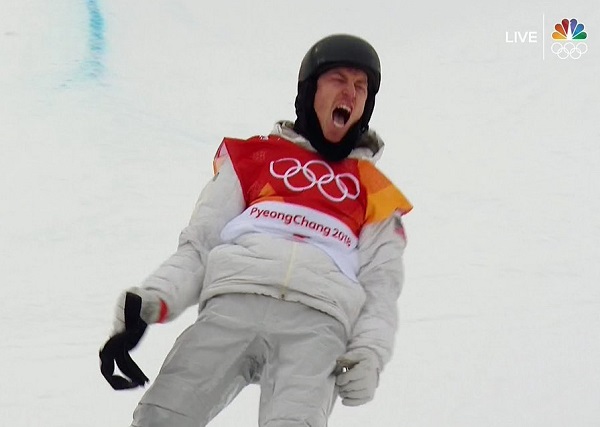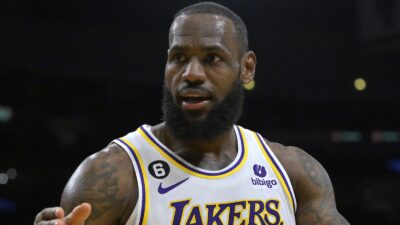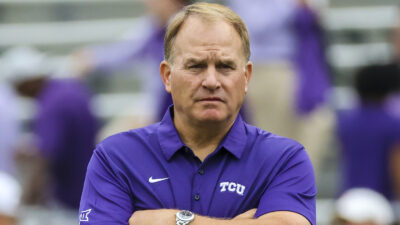
The Olympics are never without controversy, and the 2018 edition is no different. The inherent underlying politics of the international competition always lead to some interesting moments, and that’s before one even gets into the competitions themselves and how the athletes get on with each other.
Here are ten major controversies that have already emerged during the 2018 Winter Olympics.
1) The U.S. flag bearer issue
The first major controversy kicked off before the Olympic Games had even started, as U.S. speedskater Shani Davis vented his frustration over losing out on the honor of flag-bearer on account of a coin toss. It raised questions about how such processes were determined, as Davis said things were done “dishonorably.” Ultimately, luger Erin Hamlin handled the flag while Davis did not attend the opening ceremony. Davis said he’d more or less moved on from the flap, but it wasn’t an ideal way for Team USA to start the Olympics.
2) Adam Rippon takes on Mike Pence’s beliefs
U.S. figure skater Adam Rippon is one of two openly gay athletes representing the country at the Winter Olympics, which created something of a flashpoint when Vice President Mike Pence led the U.S. delegation to South Korea. Rippon was extremely critical of Pence’s anti-gay beliefs and outright refused to meet with the vice president, whose office was forced to issue several clarifications and denials. The latest involved reporting that Pence sought to meet with Rippon but was denied, which Pence’s staff has denied but Rippon’s agent confirmed. Ultimately, the controversy didn’t impact Rippon; he won bronze with his teammates at the team figure skating event.
3) Shaun White’s flag violation and sexual harassment case
Shaun White winning gold in the halfpipe was a redemption story, but the taste of victory went away quickly because of two controversies involving the snowboarder. His careless treatment of the American flag upon winning gold angered many viewers and led to an apology. Then the combination of his moment in the spotlight with the rising attention paid to sexual harassment/misconduct matters led to talks of the sexual harassment allegations White faced in 2016 being renewed. The snowboarder dismissed the allegations as “gossip” before expressing a more conciliatory tone about the matter. White settled the lawsuit last year.
4) NBC commentator loses his role
NBC’s coverage of the opening ceremonies didn’t go over well among Koreans, largely because of one NBC correspondent’s remark about the region’s history with Japan. Joshua Cooper Ramo’s unfortunate remark buried 35 rather dark years in Korean history, an era that only ended at the end of World War II. Unsurprisingly, NBC issued a full apology, and Ramo will not be a part of their coverage going forward, which was the right decision. He has since apologized.
5) Political statements and what constitutes them
Unsurprisingly, the IOC takes a very firm stand against religious and political statements at the Olympics. Of course, many athletes have chosen to use their gear to make such statements, and it has caused some controversy at the games. Most prominently, an Israeli skeleton slider had to change up his helmet after the IOC changed their mind about a religious image on it. South Korea’s goalie also couldn’t wear his helmet with an image of a naval commander on it and was upset. There were even some questions as to whether the American hockey team would be allowed to wear helmets depicting Lady Liberty before those were approved.
6) Russian doping still looms — and the Russians won’t let it go
Entering the Olympics, one of the biggest stories was the fact that Russians were not allowed to compete under the country’s flag due to a wide-ranging state-sponsored doping operation. Still, many Russian athletes have competed under the moniker of Olympic Athletes from Russia. Still, the Russians aren’t satisfied, and they aren’t taking this lying down. Russia’s foreign minister went as far to say that the Americans had pushed for the ban because they “can’t beat [the Russians] fairly.” Then there was the story of the Russian and American skeleton competitors who wouldn’t speak to each other. The Cold War-era rivalry between American and Russian athletes never quite went away, and remarks like the ones from the foreign minister ensure that it will continue to be a sideplot to these Olympics.
7) No smartphones for Iran and North Korea
Even free gifts to Olympic athletes can set up some layers of controversy. The IOC gave out free Samsung Galaxy Note 8 phones to all competitors, but there was one problem — it was questionable whether Iranian and North Korean athletes could accept the gifts, as both countries are subject to U.N. sanctions. The answer on Iran’s account was no, but North Korean athletes were asked to return the phones before returning to their home country.
8) Battling through the weather over the objections of athletes
Weather conditions have wreaked havoc on several outdoor events early in the week. Several events were postponed, but the women’s slopestyle was not, which led to a furor among competitors. Many felt that the high winds not only made it difficult to compete at the highest level, but also very dangerous to do so. A number of them fumed publicly at the fact that the event was allowed to go ahead. Given the dangers of snowboarding in high winds, you can understand why they would have been so furious.
9) Accusations of bias in judging
Ever since the infamous 2002 figure skating judging scandal, the impartiality of judges is always under a microscope at the Olympics. There are some worries from some athletes that it may be unconsciously compromised, however. Some rivals of American snowboarder Shaun White believe that the icon’s reputation precedes him so much that he’s given favorable treatment by judges. Even after White took home the gold in the halfpipe, the silver medal finisher said he felt he should have won.
10) Safety — and cyber safety — of the Games
Ensuring the safety and security of those attending the Games is always an enormous undertaking and a major story, and so far, the results have been mixed. The good news was that security was on top of a potential interloper in the Olympic Village, and that situation was handled quickly. What was a bit more problematic was a massive cyber attack that impacted the opening ceremony. This is a big new threat that many are still adapting to, and unfortunately, they were unable to stop this one, which had significant impacts on those who needed to use technology around that time.













